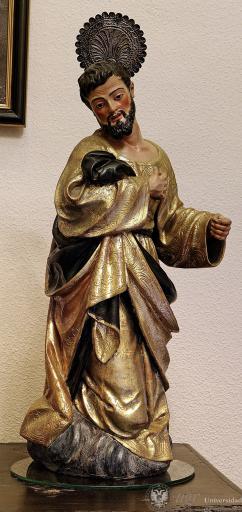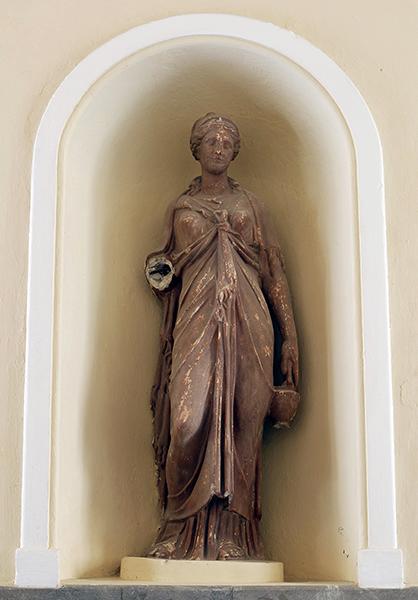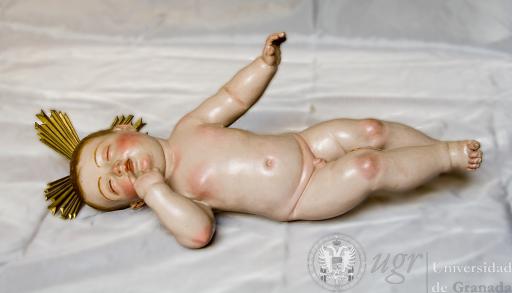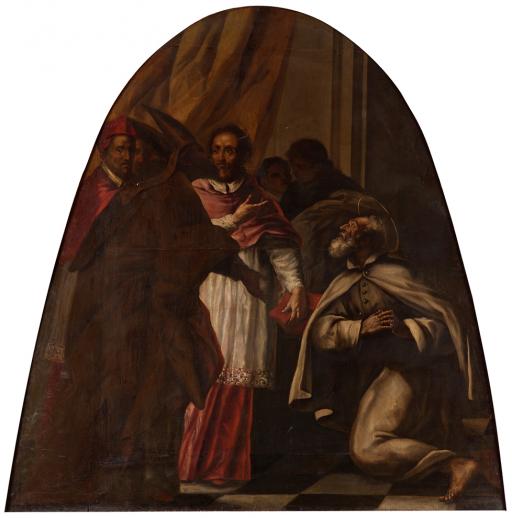Artworks
The Virgin Mary in Adoration
Description
This carving, together with that of Saint Joseph, represents the iconography of the Nativity, although in this case there is no figure to represent the Christ Child.
Its composition plays with the contorted posture of the Virgin Mary, who faces us with her torso while turning her head to face the Christ Child in adoration. This position draws the viewer’s attention to the Baby Jesus. The Virgin, her hands clasped to her chest, kneels on a bed of clouds, giving the scene a celestial quality, in line with the popular imaginary.
The outline of this carving is based on a simple series of planes, with clean-edged folds and refined contours so typical of the late Baroque period. Adding to this stylistic analysis is the polychrome, heavily decorated in golds and carved plant motifs. The top layer of gilding has been carefully scratched away in patterns to reveal the polychrome underneath, which further accentuates the contours. Despite having been associated with the Sevillian artist Duque Cornejo, the style is much closer to that of Granada, as the face, modelled to give a soft, naturalistic effect, is reminiscent of the work of Alonso Cano.
Details
- Title: The Virgin Mary in Adoration
- Category: Esculturas de bulto redondo
- University: University of Granada
- Authors: Anónimo granadino
- Chronology: Circa 1750
- Technique: Polychrome wood
- Dimensions: 80cms
- Stock number: 402
- Location: Facultad de Derecho
- Ownership: University of Granada
Bibliography
SÁNCHEZ-MESA MARTÍN, Domingo & LÓPEZ-GUADALUPE MUÑOZ, Juan Jesús. «San José y la Virgen en adoración». Obras Maestras del Patrimonio de la Universidad de Granada. vol. II. Granada: Universidad de Granada, 2006, pp.94-95.
GUILLÉN MARCOS, Esperanza. «Los bienes muebles de la Universidad de Granada». Universidad y Ciudad. La Universidad en la Historia y en la Cultura de Granada. Granada: Universidad de Granada, 1994, p. 358.
Share
Related Artworks
Niño Jesús Dormido (Sleeping Christ Child)
Anónimo granadino
UGR
Facultad de Derecho


 EN
EN  ES
ES 




